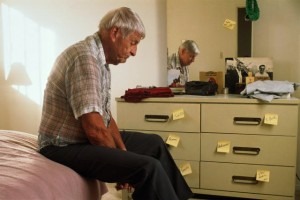Not only must truckers drive defensively and follow the same traffic laws as everyone else, they must also adhere to federal rules laid out by the FMCSA. If you've been hurt in a car-vs-truck crash, call us today at (214) 617-1886.

Evidence Important to a Truck Accident Case
Accidents involving commercial trucks tend to be handled very different than accidents involving two passenger vehicles. If you have an injury claim, understand that the truck driver's insurance company is going to look for every way to deflect blame or otherwise deny your claim.
While passenger car insurance policies generally carry $60,000 in personal injury coverage, semi-trucks and 18-wheelers are generally insured for over a million dollars. Because of this, their team of attorneys are likely already investigating the accident and going through evidence. In order to give yourself the best chance at a successful settlement, you need an attorney on your side working to collect and preserve any and all evidence that helps support your claim.
In an attempt to limit the number of truck accidents caused by driver fatigue, the Federal Motor Carrier Safety Administration has put in place strict limits on how long a commercial truck driver can be on the road. The driver's hours-of-service are logged either in a logbook or (more-commonly) by the vehicle's electronic logging device (ELD). This is a vital piece of evidence in any car-vs-truck accident case.
Electronic logging devices contain detailed information their hours on the road, as well as their rest periods. It can show whether the driver was overexerting themselves by driving long distances without rest, or if they were being overworked in order to meet a certain delivery quota during the course of any given day.
If the logs show that the driver had exceeded their allotted hours of service, this evidence can prove invaluable when it comes to proving your claim. The sooner you can obtain this evidence, the better.
Also known as the black box, the big rig's electronic control module (ECM) is a device responsible for collecting data about the voltage regulator, throttle, brakes, fuel injectors and other aspects of the engine.
Not only can this information be extremely helpful in regard to accident reconstruction, it can provide irrefutable evidence about the truck driver's speed at the time of the crash, exactly when the brakes were applied, and can give an indication of the trucker's overall driving habits.
Most trucking companies now install dash cams in their trucks in order to get a holistic picture of their drivers' performance. This video can provide invaluable evidence when it comes to determining fault in an auto accident.
For instance, it may show a drowsy truck driver drifting in and out of their lane, any driver distractions (such as mobile phone use) that may have led to the wreck, and can even be used to determine road conditions at the time of the accident.
Your accident may have even been caught on one of the many traffic cameras that line Texas highways. Neither the trucking company, nor the agency who controls the highway traffic cameras will make it easy for you to obtain this footage, but your attorney can and will demand such evidence be preserved and turned over.
Trucking companies may sometimes skimp when it comes to maintaining their vehicles because they are looking to save money. Maintenance may not be done regularly, making it more-likely for vehicles to break down or malfunction at an inopportune time. This in and of itself may help prove the negligence portion of your claim.
The vehicle's inspection history is also vital since it helps us get a picture of whether the company has had fines levied against them for not being on top of things as far as repair and maintenance is concerned.
In order to preserve this kind of evidence, it is important to know how to access it. As one of Dallas' premiere truck accident injury law firms, our attorneys can help you obtain this evidence for no out-of-pocket cost. In fact, we never earn a fee unless (and until) we win your case and put money in your pocket. Call us today at (214) 617-1886 for a free consultation.
The attorneys at Rasansky Law Firm are happy to speak to you about your potential case free of charge. If we can help with your claim, we'll do so for no out-of-pocket cost to you. Call us 24/7 at (214) 617-1886.
Evidence is a huge part of any court case. For the most part, the presence of evidence can determine the trajectory and eventual outcome of a case brought before a judge and jury. Spoliation of evidence simply refers to the destruction of evidence by throwing it away, shredding it, erasing it, or in such as manner so as to make it virtually irretrievable in the future.
The spoliation of evidence is a big concern when it comes to personal injury cases, but there are ways in which an attorney can help prevent the other side from destroying critical evidence related to your case; namely by sending a well-crafted spoliation notice to the defendant.

Spoliation of Evidence
The consequences for destroying (or failing to preserve) evidence after receiving a spoliation letter are punitive and far-reaching. When key evidence gets erased or destroyed, your ability to argue your claim may be severely and unfairly impacted. This is why the law takes this form of evidence tampering so seriously in the first place.
By sending a spoliation letter, you're putting the other side on notice that they are responsible for preserving evidence which may be used to prove your claim. This places a legal duty on them to do so, and if they violate this duty, the court can impose severe sanctions on the defendant. In fact, a violation could give rise to the legal presumption that the evidence would have been harmful to their side of the case, which could prove even more-detrimental to the defendant's case.
Tom Brady’s case is a perfect example of spoliation of evidence happening in the glare of the public eye. Shortly after sitting down to give an interview to Ted Wells, Brady's mobile phone, a key piece of evidence containing more than 10,000 text messages, went missing. He later claimed that he had gotten rid of the phone in a routine manner like he always did with past phones. That being said, his actions were clearly suspect given the investigation into the football deflation scandal in which he was accused of playing a role.
The justice system relies heavily on the careful preservation of evidence. If you are caught up in a lawsuit where you suspect that the defendant may potentially destroy evidence, it would be in your best interests to reach out to Rasansky Law Firm immediately.
We’ll draft an iron-clad spoliation letter that will be sent to the defendant and their legal team to warn them of the consequences of evidence tampering or ignoring a spoliation letter; some of which include adverse interference jury instruction, the payment of the plaintiff's attorney fees, monetary penalties, and an increased likelihood of punitive damages being awarded.
We understand the desire that many people have to handle their own cases, but you must understand that by doing so, you're putting your entire case at risk. If you make a mistake, fail to answer a list of admissions correctly, or even miss a deadline, your case could be dismissed and you lose your chance to pursue this claim forever. When it comes to a personal injury case, you really need a lawyer on your side to handle the intricacies of your case and advocate for your rights.
Please get in touch with us by calling (214) 617-1886 or filling in our online contact form so that we may provide you with a free consultation regarding your case and explain your legal options.
The attorneys at Rasansky Law Firm are happy to speak to you about your potential case free of charge. If we can help with your claim, we'll do so for no out-of-pocket cost to you. Call us 24/7 at (214) 617-1886.

Laws on Video Surveillance
Your loved ones deserve a high level of care taking into account their privacy and comfort. If you suspect that someone you know is being mistreated in a nursing home, please get in touch with us for a free consultation so we can help you get justice and compensation for you and your family.
The attorneys at Rasansky Law Firm are happy to speak to you about your potential case free of charge. If we can help with your claim, we'll do so for no out-of-pocket cost to you. Call us 24/7 at (214) 617-1886.
When considering a Texas nursing home for your elder loved one, it can sometimes be difficult to look past the sales pitch and see the warning signs of nursing home abuse and neglect.
When touring a nursing home, be on the lookout for these warning signs:
When touring a nursing home, ask to see an occupied room and to meet a resident or two. Visit unannounced and during a meal for the most accurate observations.
If you believe you have a Dallas nursing home abuse case, call Rasansky Law Firm today to speak with a Texas nursing home neglect attorney.
If you suspect nursing home abuse, then start looking for physical evidence. Examine your relative's body and look for broken bones, cuts, scars or sores. If you see evidence of physical abuse ask the patient what happened. Remember, the patient might not admit the abuse at first. If necessary, talk to staff members of the home, the staff supervisor or the attending physician. You even have the right to see the patient's medical chart. For signs of neglect, carefully inspect the patient's body and note if the resident seems dirty or malnourished. Make sure the patient's room is clean. Take note of any signs of depression or drastic changes in the resident's typical behavior.
Read more: Signs of Nursing Home Abuse
The first and most important issue to deal with after a birth injury is caring for the health of the baby and the mother. Get advice, treatment, and support from medical professionals you trust, and do not be afraid to get a second opinion. Also, be sure to take advantage of counseling and therapy options if you or your family needs help processing what happened.
After the health and well-being of your family is under control, you may wish to speak with a Dallas birth injury lawyer. A medical malpractice attorney can help you better understand what caused your baby’s injury, collect the evidence of the case, and enumerate your legal options if you choose to take action.
A birth injury is traumatic for the entire family – and one mistake in labor and delivery can lead to a lifetime of medical costs, nursing care, disability, and therapy. If you believe that your child's injury was caused by negligence, you owe it to your family to ensure that the person or hospital responsible for your child’s injury pays for the consequences of their negligent actions. If someone else caused the injury, why should the financial burden be placed on your family?
Texas’ 2003 tort reform laws included a requirement that anyone filing a medical malpractice claim in the state must provide a medical expert’s report within 120 days of submitting their case. In other words, an expert witness is absolutely required if you are seeking compensation for a medical error.
Having medical experts on your side during a medical malpractice lawsuit is key to winning your case. A medical expert’s testimony can verify that your injury was the result of carelessness or negligence, help the jury understand the extent of your injuries, and help explain permanent injuries and future medical requirements. In addition, a medical witness can clearly explain the evidence in your case (medical records and medical bills) and that your medical issues were not pre-existing.
In addition to a medical expert, you may want other types of expert witnesses to testify during your trial, including an economic damage expert, a vocational rehabilitation expert, and a life care planning expert.
At Rasansky Law Firm, our Texas medical malpractice attorneys understand how important securing a knowledgeable and experienced medical expert is to the outcome of your case. To speak with one of our lawyers and learn more about how we may be able to help, please call us today for a free consultation.
Step #1 is to call a medical malpractice attorney. Since substantial evidence is needed to prove your case, you may be asked to sign release forms. This gives your attorney permission to access your medical records that need reviewing by experts.
Depending on the particulars on your Texas personal injury lawsuit, information taken from a car black box recorder - also known as an event data recorder (EDR) - can either help or harm your case.
EDRs are increasingly common in newer cars, and some vehicle owners don't even know that their car contains a black box device. The small recorders can tell authorities a wealth of information about a traffic accident in the wake of a crash, including the car's speed, whether or not the brakes were applied, and even whether or not passengers were buckled up. While information that shows you were adhering to traffic laws can help your TX accident case, information that shows that you were speeding or did not brake could harm your case.
Generally, black box recorders and EDRs are a good thing for car accident lawsuits because they can provide solid evidence regarding how and why a traffic accident occurred. However, it is important to know your rights regarding EDR information from your car and from others' cars in Texas. To learn more about how black box recorders could affect your car accident lawsuit, contact the Dallas personal injury attorneys at Rasansky Law Firm.
A phantom vehicle, according to insurance companies, is a vehicle that causes a car accident or car accident injury without ever coming into contact with the car that crashes. In the majority of cases, a phantom vehicle will leave the accident scene in the seconds after causing the crash, making it difficult to prove fault and collect compensation unless witnesses come forward or physical evidence is found.
Also know as “miss and run” accidents, phantom vehicle accidents often occur when another driver’s reckless or sudden movements cause you to hit another car or run off of the road. For example, a car that is illegally passing cars, speeding, weaving through traffic, or stopping suddenly could cause a phantom car accident. In some cases, cars may even purposefully run other vehicles off of the road.
Just because phantom car accidents can make it more challenging to collect damages does not mean that you should give up on receiving compensation after your miss and run crash. The best way to learn about your case and your best options for moving forward is to schedule a free, no-obligation meeting with a Texas car accident attorney.
Over 30+ Years Of Personal Injury Experience
Top-Rated and Award-Winning Personal Injury Lawyers
Attorneys Available to Discuss Your Case Now
No Fee Unless You Win
Free Confidential Consultation.
Fill out the form below to receive a free and confidential initial consultation with an experienced personal injury lawyer.